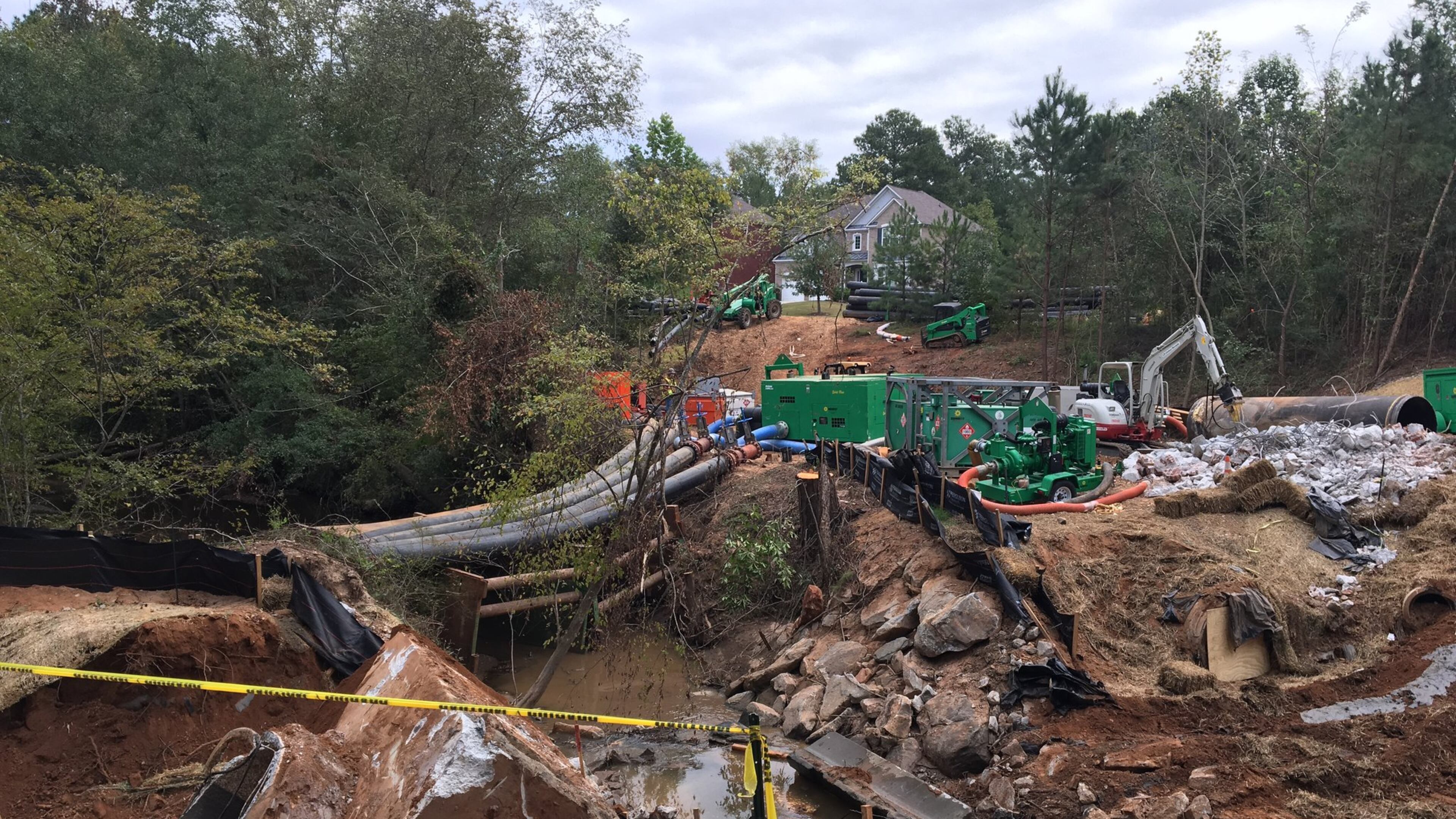DeKalb unveils new system to gauge sewer capacity

DeKalb officials say they have improved the flawed and labor-intensive process for reviewing the impact that proposed developments will have on the county’s aging sewage system.
The new evaluation system is more accurate and will allow the county to more quickly process 287 pending applications, said Ted Rhinehart, deputy chief operating officer for infrastructure. The High Street Atlanta multi-use development and Nexus office building, both planned near the Perimeter Mall in Dunwoody, are among the projects awaiting review.
The county has been under a federal consent decree since 2011. This agreement required the county to update and improve its antiquated sewer system and reduce the propensity for massive sanitation spills by 2020.
The revised process uses geographic mapping, historic rainfall data and flow monitoring systems to determine if the sewage system can handle increased demands from new developments.
“We believe that the new model is more accurate,” supervising county attorney Matthew Welch said.
In the past, the county's review system sometimes over-estimated the impact of new buildings and other projects. Property owners were required to do remediation, such as building temporary storage tanks, that were later deemed unnecessary.
Some evaluation techniques used by the county were more accurate but time-consuming. For example, flow monitors require significant rainfall to provide enough information about runoff and leaky pipes. And they must be in places were that data is needed.
“What takes time is staff reviews the application and make sure its accurate and complete,” said Rhinehart. “Then they look at the model and where the flow is going to go.”
With the new system in place since December, applications can be processed more quickly and provide developers with reliable information on how their projects will impact the sewage system. If there is enough capacity, the new developments can move forward. If not, the county could require builders to help pay for repairs or updates that increase flow.
MYAJC.COM: REAL JOURNALISM. REAL LOCAL IMPACT.
The AJC's Tia Mitchell keeps you updated on the latest happenings in DeKalb County government and politics. You'll find more on myAJC.com, including these stories:
- Confederate monument in DeKalb can be moved, but not concealed
- DeKalb seeks bar crime data before imposing earlier closing time
- DeKalb ignores key recommendation for fixing water billing problem
Never miss a minute of what's happening in DeKalb politics. Subscribe to myAJC.com.



